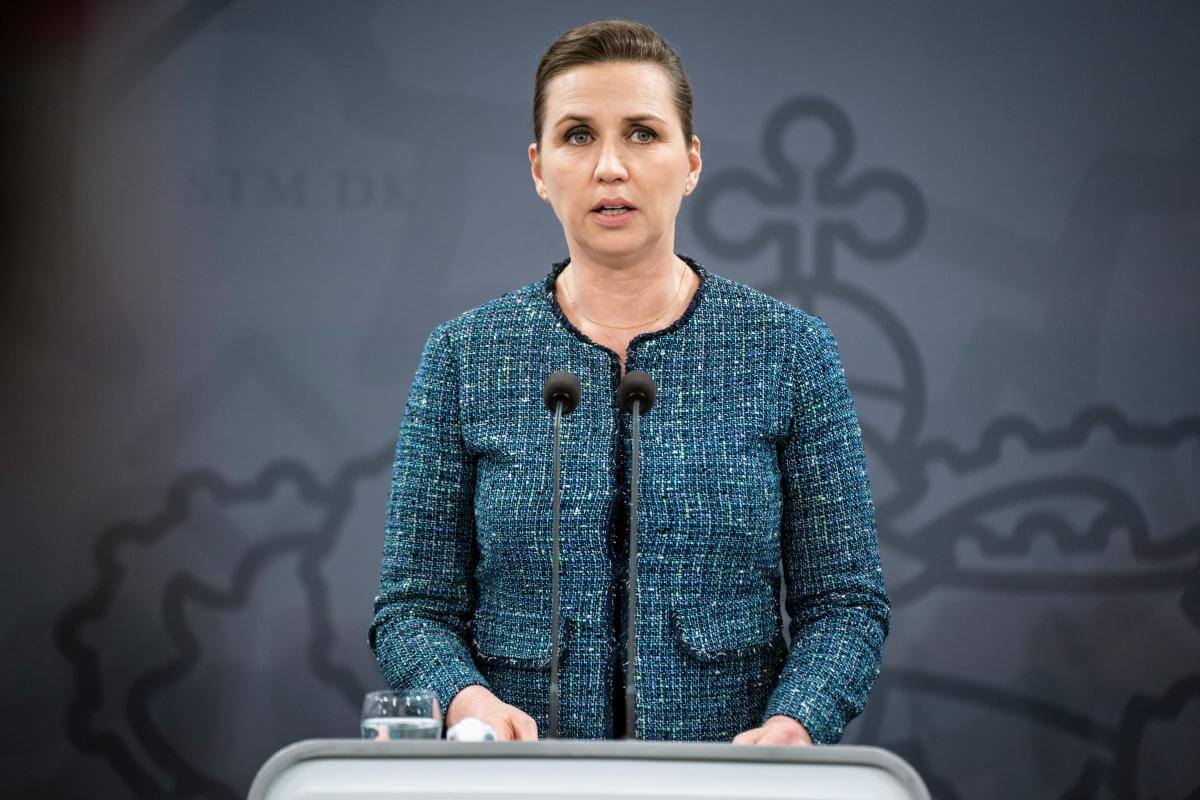In a historic referendum prompted by the Russian invasion of Ukraine, Danish citizens voted on Wednesday to reverse the country’s opt-out from the European Union’s (EU) defence and security policy.
According to the June 1 national referendum, 66.9 % of Danes voted in favour of the change. Moreover, scrapping the opt-out was supported by ten parties, including the ruling Social Democratic party.
Denmark: with 100% of the vote counted in today's national referendum, the country is set to abolish its opt-out from the EU's cooperation on defence and security
— Europe Elects (@EuropeElects) June 1, 2022
With the "Yes" option receiving a plurality in all 92 constituencies, tonight's result presents quite a uniform map: pic.twitter.com/3F3XilVWmf
In a speech following the exit polls, Prime Minister (PM) Mette Frederiksen said, “Tonight Denmark has sent a very important signal. To our allies in Europe and NATO, and to (Russian President Vladimir) Putin. We’re showing, that when Putin invades a free country and threatens the stability in Europe, we others pull together.”
The PM said the move is further indication that there are two Europes—one before the Russian invasion, which began on February 24, and one after. “When there is once again war on our continent, you can’t be neutral,” declared Frederiksen. In fact, she announced the referendum just two weeks after the Russian invasion of Ukraine after securing an agreement with the majority of parties.
Frederiksen remarked on the happy text messages she has received from colleagues abroad. One such congratulatory message came from the European Commission President Ursula von der Leyen, who welcomed Denmark’s “strong commitment” to the bloc’s common security and remarked that both EU and Denmark would benefit from this decision. European Council President Charles Michel, too, welcomed Denmark’s “historic choice.”
I welcome the strong message of commitment to our common security sent by the Danish people today.
— Ursula von der Leyen (@vonderleyen) June 1, 2022
Denmark’s expertise on defence is much valued.
I am convinced that both Denmark and the EU will benefit from this decision.
We are #StrongerTogether
The people of Denmark have made a historic choice.
— Charles Michel (@eucopresident) June 1, 2022
The world has changed since Russia invaded #Ukraine
This decision will benefit Europe and make both the EU and the Danish people safer and stronger.
I welcome the determined leadership shown by @Statsmin Mette Frederiksen. pic.twitter.com/Q9Ja0F5ce0
In contrast, parties opposing the referendum have accused the government of misusing the Ukraine war. The head of the far-right Danish People’s Party, Morten Messerschmidt, said, “The Yes side has tried to abuse the war in Ukraine to make Danes feel that it is important that we stand together.”
Parties opposing the referendum also warned of additional costs and loss of sovereignty.
Until Wednesday’s referendum, the opt-out on defence allowed Denmark to avoid participating in the bloc’s defence policy, wherein it could refuse to send troops to all EU military missions.
Removing opt-out, which has been in place for the last 30 years, will allow Denmark to participate in joint EU military operations and cooperate on acquiring and developing military capacities.
Today, #Denmark has taken a historic decision to move Europe even closer together. The EU’s response to Russia's war against #Ukraine is a stronger Common Security and Defense Policy. Every step each of us takes makes us stronger in the face of these tectonic shifts. @JeppeKofod
— Außenministerin Annalena Baerbock (@ABaerbock) June 1, 2022
I warmly welcome Denmark's decision to fully participate in EU's defence and security cooperation.
— Antti Kaikkonen (@anttikaikkonen) June 2, 2022
This and Finland joining NATO will open doors for enhanced cooperation between 🇫🇮 and 🇩🇰 in the future, which ultimately strengthens European and transatlantic security. @mfMorten
Denmark’s participation in one of the seven ongoing military missions remains unclear. However, several political parties that supported the referendum said Denmark could participate in a peacekeeping mission in Bosnia and Herzegovina and the anti-piracy mission off the coast of Somalia.
Apart from scrapping the opt-out, the Danish government and main parliamentary parties also agreed to increase the country’s defence budget to match the North Atlantic Treaty Organization’s spending goal—2% of GDP—by 2033.
The referendum comes as the Ukraine war forces European countries to reconsider their defence and security policy. Denmark has traditionally been a Eurosceptic Scandinavian country and has often said “no” to greater EU integration. Although Denmark supports economic cooperation and a single market, the country has previously voted to keep opt-outs on a single currency as well as defence, justice, and home affairs.
Busy hours!
— Jeppe Kofod (@JeppeKofod) June 1, 2022
🇪🇺🇩🇰 Been in touch with @JosepBorrellF +🇸🇪🇫🇮 colleagues to inform that the people of Denmark today voted to abolish opt-out on EU’s security & defense cooperation
We now have an even stronger foundation for close Nordic security cooperation in #EU & NATO#dkpol #eudk pic.twitter.com/bHXbydfqM8
Denmark was until this week the only EU member state that was not part of the bloc’s ‘Common Security and Defence Policy.’ Copenhagen secured an exemption via the 1993 referendum on the Maastricht Treaty, the EU’s founding treaty.
Denmark has reportedly used its opt-out 235 times in the last 29 years. It has previously held eight referendums on EU issues, including the 2015 vote against strengthening cooperation on policing and security, fearing an erosion of sovereignty due to immigration.
The referendum comes as various other European nations overhaul long-held security and military positions following the Russian invasion of Ukraine. For instance, Germany has allocated $106.8 billion for military spending and said it is ready to meet NATO’s 2% target. Similarly, Finland and Sweden have ditched their neutral security policy and applied for NATO membership.

